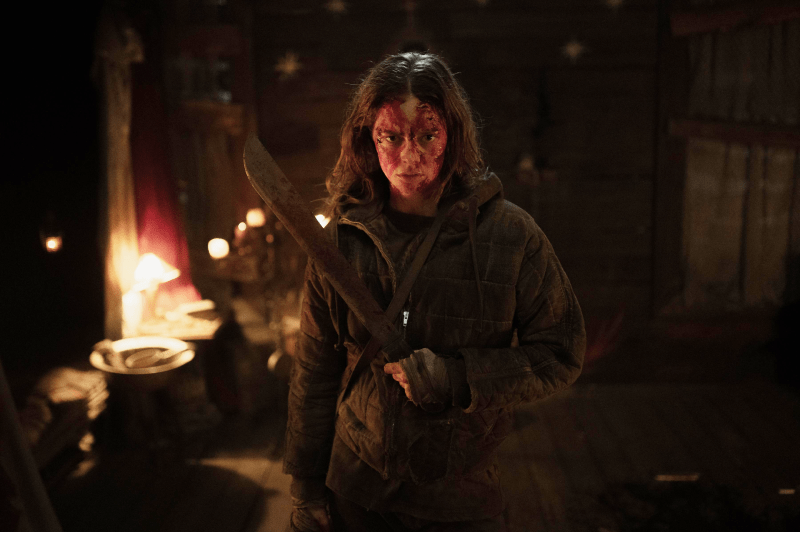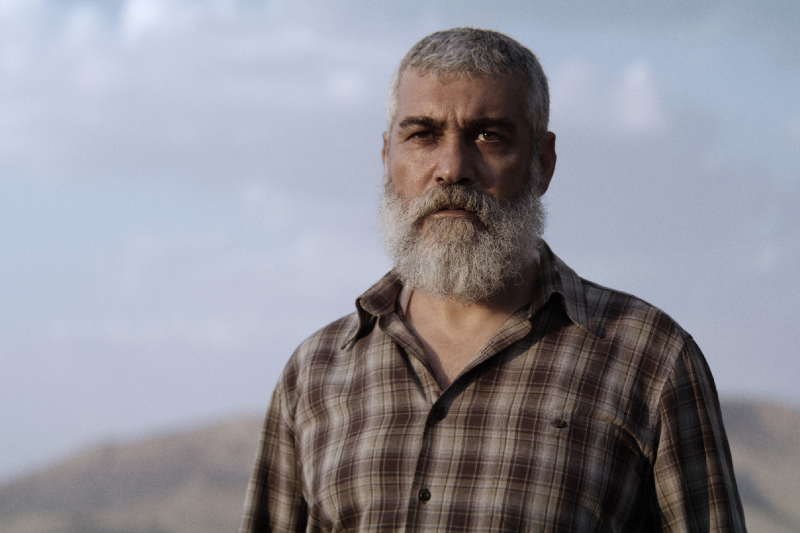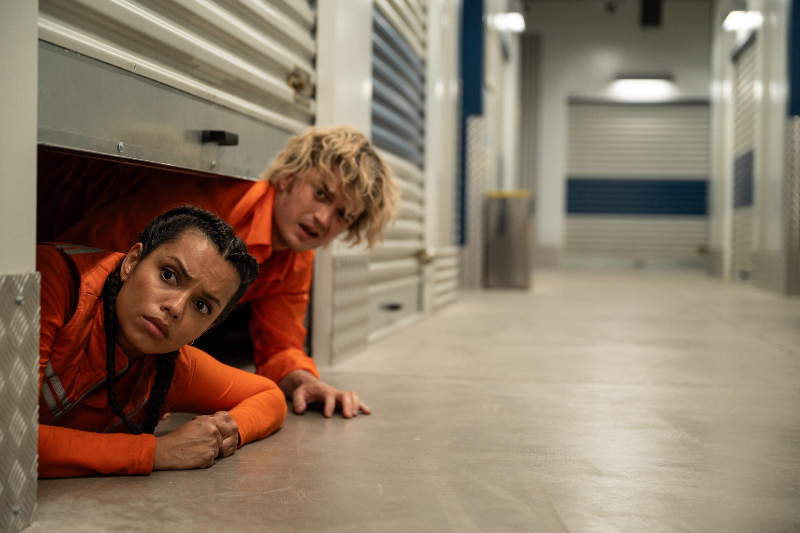If we’re cursed to live in a period of rising theocracy, at least it means we’ll get an uptick of religious horror. Filmmakers have cast a wide net these past few years, giving us movies that move outside of standard notions of Christianity to explore more iterations of belief. We have also seen a corresponding uptick in films about religious or paganistic cults, proving that there is far more to this subgenre than onscreen exorcisms. So to paraphrase Jesus: forgive me for having high hopes going into Azrael, the new post-apocalyptic horror film from writer Simon Barrett (The Guest) and director E.L. Katz (Cheap Thrills), for I knew not what I did.
Azrael opens on a world where the rapture has come and gone and what’s left of humanity shares the wastelands with cannibalistic creatures. Azrael the character – a one-woman show from Australian actress Samara Weaving – is one such survivor, who, like many, has carved away her ability to speak in an act of penance for the gods. Azrael lives a gentle life, crafting small bracelets that she shares with her partner and hiding from the roaming bands of raiders who might do the two of them harm.
But when Azrael and her partner are captured by one such encampment, she must endure a hellish few days of violence as she tries repeatedly to flee their scouting parties. And after she is finally pushed past the breaking point, Azrael decides to bring the fight to them, returning to the village to confront the community’s religious leaders – and the faith that drives them to sacrifice others to the monsters of the wasteland.
There’s a fine line between ambiguity and deficiency in storytelling. Folk horror is a subgenre that walks this line particularly well; we are drawn to movies like David Bruckner’s The Ritual because they show just enough to convey bigger ideas lurking beneath the surface. But not all subtext implies the presence of text, and films like Azrael struggle to earn the benefit of the doubt. For example, we never quite suss out the relationship between Azrael and technology – she knows her way around a gun but seems unnerved by the car radio – and the way the actors emote through their nonverbal scenes fails to suggest bigger ideas of society and communication.
Of course, Azrael does not owe us the answers to each and every one of these questions – movies are not an open-book quiz between us and the filmmakers. But these little insights are what earn our willingness to immerse ourselves in an otherwise opaque world. Azrael may entice with onscreen chyrons about the rapture and the end of the world, but the story beats are more in-line with dozens of post-apocalyptic monster movies released in the past two decades. What should read as ambiguity instead reads as deficiency, and whatever big ideas the film has are lost behind more standard post-apocalyptic flair.
(Azrael does dump all its cards on the table in its final minutes, finally embracing the Revelations-inspired narrative promised since the opening credits. But by then, it’s too little, too late. One A-plus final shot does not an entire movie make.)
Granted, there are far worse things to be in life than a horror movie starring Samara Weaving. While Azrael’s nonverbal approach to the apocalypse might not elevate the material in the way the filmmakers hoped, it is still a hell of a showcase for horror's favorite final girl. Weaving’s arc from gentle survivor to agent of destruction is what keeps Azrael moving forward, and there’s just enough variety in the action – a prolonged brawl over an assault rifle here, an underground chase sequence there – to prevent audiences from ever getting bored.
If your goal in seeing Azrael is to enjoy an ultraviolent midnighter with one of the genre’s biggest stars, you might find it easier to give this one a pass. Multiple throats are torn out with teeth – even Azrael gets in on the action – and the film gives audiences the ever-popular image of a creature drinking blood from the stump of a decapitated head. Katz and company go all out with the low-budget gore, and those who weigh their horror movies by the intensity of the kills will have a little cause to celebrate. If you must see Azrael, make sure you see it in a crowded theater – those real-time audience reactions are going to push the movie forward more than the story ever did.
But the truth is that you have to meet Azrael more than halfway to find something as interesting as the description on the tin. There are so many promising ideas in play with Barrett’s script that, if Azrael must disappoint, it should be because of the regret we feel when the big ideas never fully come together. Instead, Azrael underwhelms when those same big ideas are rarely given the same amount of screen time as a few spurts of gore. When a film goes out of its way to tell you how ambitious it wanted to be, it’s hard to shake the notion of what could have been. [2/5]






